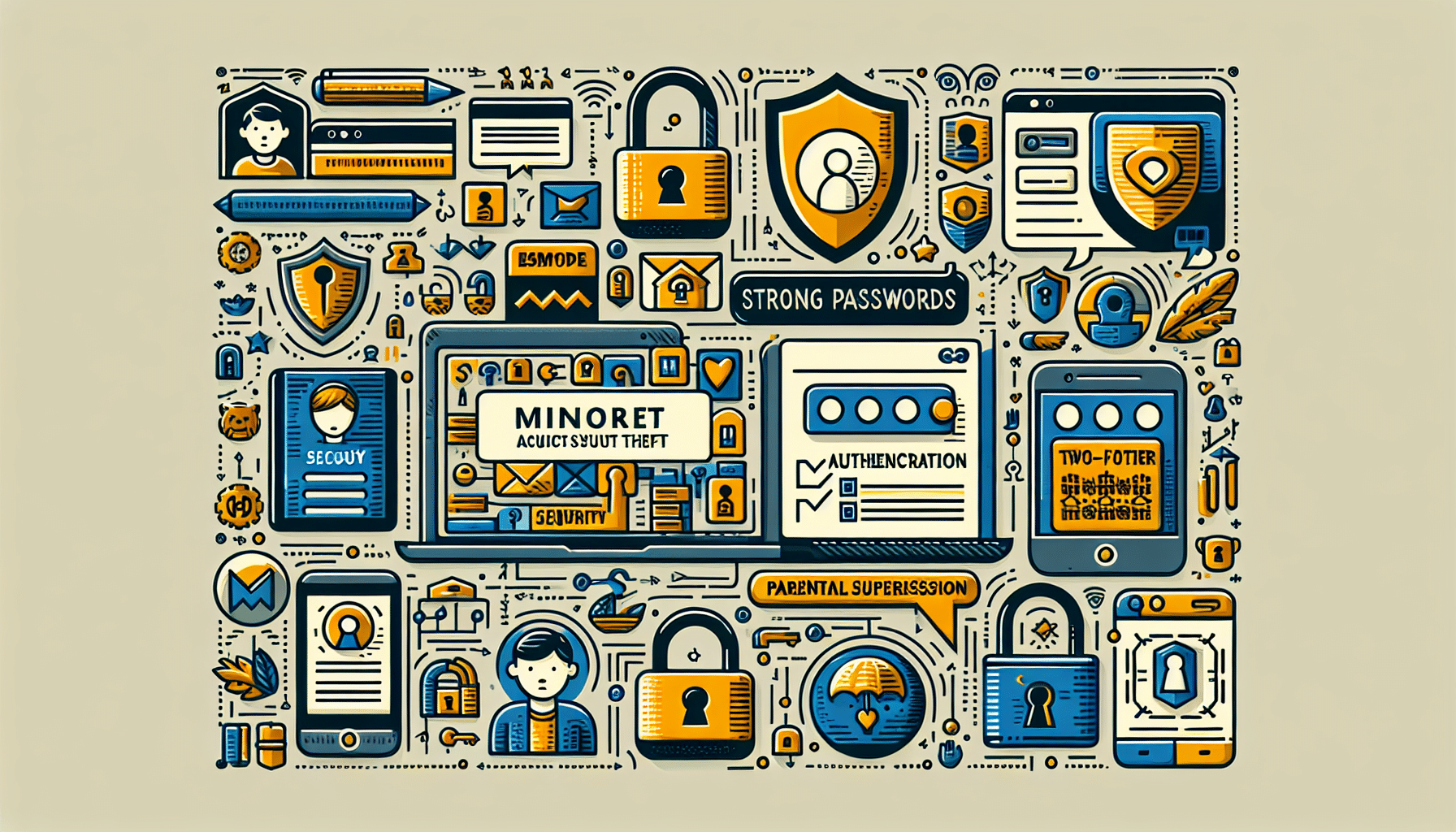There is an increasing number of account thefts of online services, such as social networks or video games, which also affects minors. The security of their information is crucial to prevent these types of problems.
That’s why it’s crucial to educate minors about the possible associated risks, such as account theft or unauthorized access to personal information.
Why are they interested in stealing accounts from teenagers and young people?
Like with general users, the primary motivation for stealing social media and video game accounts from children and teenagers is financial gain. On one hand, if cybercriminals access the profile, they can have access to the payment methods linked to the accounts. On the other hand, they could also sell the accounts themselves or the personal information hosted in them in illegal markets.
Furthermore, in some cases, there are also account thefts among minors, which are usually driven by personal reasons, such as cyberbullying, the dissemination of private information, and the desire to cause harm.
How do they steal accounts?
The most common techniques used by cybercriminals to gain unauthorized access to minors’ personal information and steal their accounts are based on social engineering:
Phishing for passwords: They use internal chats of applications and video games, sending SMS, emails, private messages on social networks with alarming excuses to get them to click on a malicious link that loads a phishing website where they capture the victim’s username and password. Typical examples include ads about unauthorized account access, security issues, account cancellation risk, and promises of gifts, prizes, or rewards in video games.
Deception to make them surrender their account without being aware: Contacting them in the same way as in the previous case, but trying to get them to change the contact email of their account to that of the criminal, provide their password, or the two-step verification code they receive on their mobile. Excuses include proving their identity to enter a raffle, receive a prize, or ensure they are from technical support and need the code to protect the account.
Stealing passwords or sessions through malware: Cybercriminals convince minors to download a fraudulent application or run an attachment, unknowingly installing malicious software on the device with which they can, among other things, steal login usernames and passwords.
Additionally, it is necessary to pay attention to avoid carelessness with minors’ devices or when they log in with their accounts on public or shared devices. For example, leaving the phone unlocked, the session started on a school computer, or allowing the browser to remember the password, can lead to unauthorized access, misuse of the account, theft, or disclosure of compromised information.
How to prevent account theft?
To help minors protect themselves online and prevent account theft, it is essential to adopt and share some preventive measures and effective daily use strategies with them:
1. Use strong and secure passwords: Create long, easy to remember, difficult to guess passwords, and make them different for each account. Also, protect their mobile devices with a secure unlocking system.
2. Do not share the password, any two-step verification code, or change the contact email of the account: No matter the excuse, it is always dangerous.
3. Two-factor authentication: Activating it adds an extra layer of protection to our accounts, so that besides the password, a second temporary code received on the mobile is necessary.
4. Be careful with shared devices: Take precautions when logging in, ensuring that the password is not saved or the session remains started, and when finished, log out of all the applications that have been used.
5. Be wary of messages about gifts, promotions, contests, or suspicious requests: Warn about the existence of accounts or people who make this type of content to deceive minors.
6. Do not install unofficial applications or open attachments without analyzing them first with an antivirus or an online analyzer: These actions can compromise the security of accounts and devices.
Furthermore, it is advisable to maintain open communication within the family, fostering an environment where minors feel comfortable discussing their online experiences, knowing they can talk about any issues with a trusted adult without fear of blame or exaggerated reactions.
If you have any doubts related to account theft or how to protect yourself from it, remember that you can contact the free and confidential Cybersecurity Help Service of INCIBE by calling 017, via WhatsApp at 900 116 117, or the Telegram channel @INCIBE017.
This content is part of the Identity Theft thematic resources and has been produced within the framework of the funds from the Government of Spain’s Recovery, Transformation, and Resilience Plan, funded by the European Union (Next Generation).
via: INCIBE
Source: MiMub in Spanish










